Media Hub: Olympic and Paralympic Games Paris 2024U.S. Olympic Fencing Team#
Media Hub: Olympic Games Paris 2024

What's Included Here?
Welcome to the media hub for USA Fencing at the Olympic and Paralympic Games Paris 2024. We'll update this page regularly with photos, results, quotes and other info useful for your coverage of fencing in Paris!
Quick Links
For live coverage (during Olympics)
- Live results/bracket (use the drop-down to switch events)
- Photos from #BizziTeam (editorial use only; must credit #BizziTeam via USA Fencing)
- Photos of Team USA fencers also available via Getty Images
For preview (posted before Olympics)
- Headshots of Olympians (Dropbox) — Credit Serge Timacheff/USA Fencing
- Pre-Olympics action shots (Dropbox) — Credit #BizziTeam via USA Fencing
- Paralympian action shots (Dropbox) — Credit USA Fencing
- B-roll video of Olympians (Dropbox) — Credit info is within each file name
- USA Fencing Olympic Media Guide (PDF)
- Facts about the U.S. Olympic Fencing Team roster
eneral Information
Fencing 101
Fencing is a strategic combat sport where opponents face off with swords in a defined area, aiming to score points by hitting specific target areas on each other's bodies. The sport involves quick movement, precise blade work, and strategic thinking to outmaneuver opponents while following strict rules of engagement. Fencing — often called "physical chess" — combines athleticism with tactical finesse for a thrilling battle of skill and strategy.
The Olympics and Paralympics feature three fencing disciplines — Epee, Foil and Saber — each with a distinct weapon and set of rules.
Learn more on the NBC Olympics site.
Olympic Games Fencing Events
In the Olympic Games, Team USA will compete in the following 10 events:
- Women's Epee (Team and Individual)
- Men's Saber (Team and Individual)
- Women's Foil (Team and Individual)
- Women's Saber (Team and Individual)
- Men's Foil (Team and Individual)
Competition Information
- Olympics: July 27 to Aug. 4, 2024
- Paralympics: Sept. 3 to 7, 2024
- Broadcast information and replays: NBCOlympics.com/fencing
- Hashtags: #OneForAll #ParisOlympics
- Olympic Media Guide: Download
USA Fencing Media Contacts
Olympics: Bryan Wendell
Paralympics: Nicole Kirk
About the Three Weapons
Epee #
Target Area: The entire body from head to toe.
Scoring: Points are scored with the tip of the weapon, allowing both fencers to score simultaneously.
The epee (pronounced "EPP‐pay"), the descendant of the dueling sword, is similar in length to the foil, but is heavier, weighing approximately 27 ounces, with a larger guard (to protect the hand from a valid hit) and a much stiffer blade. Touches are scored only with the point of the blade, and the entire body, head‐to‐toe, is the valid target area, imitating an actual duel. A full‐body target makes epee a competition of careful strategy and patience — wild, rash attacks are quickly punished with counter‐attacks.
Foil #
Target Area: Torso
Scoring: Points are scored with the tip of the weapon on valid target areas, while maintaining "right of way."
Off-target Hits: Strikes on non-valid areas result in a white light. The referee calls “halt,” no touch is awarded, and the bout resumes from that position.
The foil is a descendant of the light court sword used by nobility to train for duels. The foil has a flexible rectangular blade, approximately 35 inches in length and weighs less than one pound. Points are scored with the tip of the blade and must land within the torso of the body. The valid target area in foil is the torso and does not include the arms, neck, head and legs. The flexible nature of the foil blade permits the modern elite foil fencer to attack an opponent from seemingly impossible angles.
Saber #
Target Area: Waist up, including arms and head.
Scoring: Points are scored with the edge or tip of the weapon while maintaining "right of way."
The saber is the modern version of the slashing cavalry sword, and is similar in length and weight to the foil. The major difference is the use of the blade. Saberists can score with the edge of their blade, as well as the point. The target area is from the bend of the hips (both front and back) to the top of the head, including arms. This simulates the cavalry rider on a horse. Saber is a fast, aggressive discipline, with fencers rushing their opponent from the moment the referee gives the instruction to fence.
How the Field Was Formed
The Olympic fencing competition features a selection of the world’s best athletes to ensure global representation and the highest level of competition. Here’s how the field is selected:
- Quota Spots: There are 34 dedicated quota spots for each weapon. The first 24 spots are allocated to the three members of each of the eight qualified teams in the team event. This is how Team USA qualified the 15 athletes who will be competing in the individual events (three each in Women’s Epee, Men’s Saber, Women’s Foil, Women’s Saber and Men’s Foil).
- World Rankings: Six additional fencers are selected based on their FIE (International Fencing Federation) world rankings. These selections are distributed across continents: two from Europe, one from the Americas, two from Asia/Oceania, and one from Africa.
- Continental Qualifiers: Four spots are allocated through winner-takes-all continental qualifying events, with one fencer each from Europe, the Americas, Asia/Oceania, and Africa.
- Host Nation: As the host nation, France receives six quota places, to be distributed among team and individual events, respecting the 18-member maximum for any one nation and the 37-fencer limit for each individual event.
Tournament Format
Olympic fencing is structured a little differently from other fencing tournaments.
- Single-Elimination: The competition is a single-elimination tournament, meaning there are no preliminary pool rounds. Athletes compete in direct elimination (DE) bouts from the start.
- Round of 64: The competition begins with the Round of 64, though many fencers receive byes directly into the Round of 32 due to the field size (34-37 fencers).
- One Day Only: Each weapon’s entire competition is contested in a single day. For example, Women’s Foil begins at 3:30 a.m. ET on July 28 with the Round of 64 and continues through to the medal rounds, which start at 1 p.m. ET.
- Bronze Medal Bouts: Unlike other fencing tournaments, there is no automatic tie for bronze. Fencers who lose in the semifinals compete in a separate bout for the bronze medal before the gold medal bout.

Olympic Seeding
So who fences whom? Even though rankings are locked, we won’t know until a couple of days before the tournament.
- Based on FIE Rankings: Fencers are initially seeded according to their FIE (International Fencing Federation) world rankings. This ensures that the highest-ranked fencers do not meet in the early rounds, rewarding success throughout the season.
- Randomized Pairings: However, the seeding process is not strictly 1 vs. 32, 2 vs. 31, and so on. Two days before the competition, a draw is conducted where pairings (1/2, 3/4, 5/6, etc.) are randomized and could potentially flip, adding an element of unpredictability.
We’ll share the matchups on our Media Hub and via social media as soon as they’re set.
U.S. Olympic Fencing Team #
Women’s Epee #
National coach: Natalie Dostert; National assistant coach Cedric Loiseau
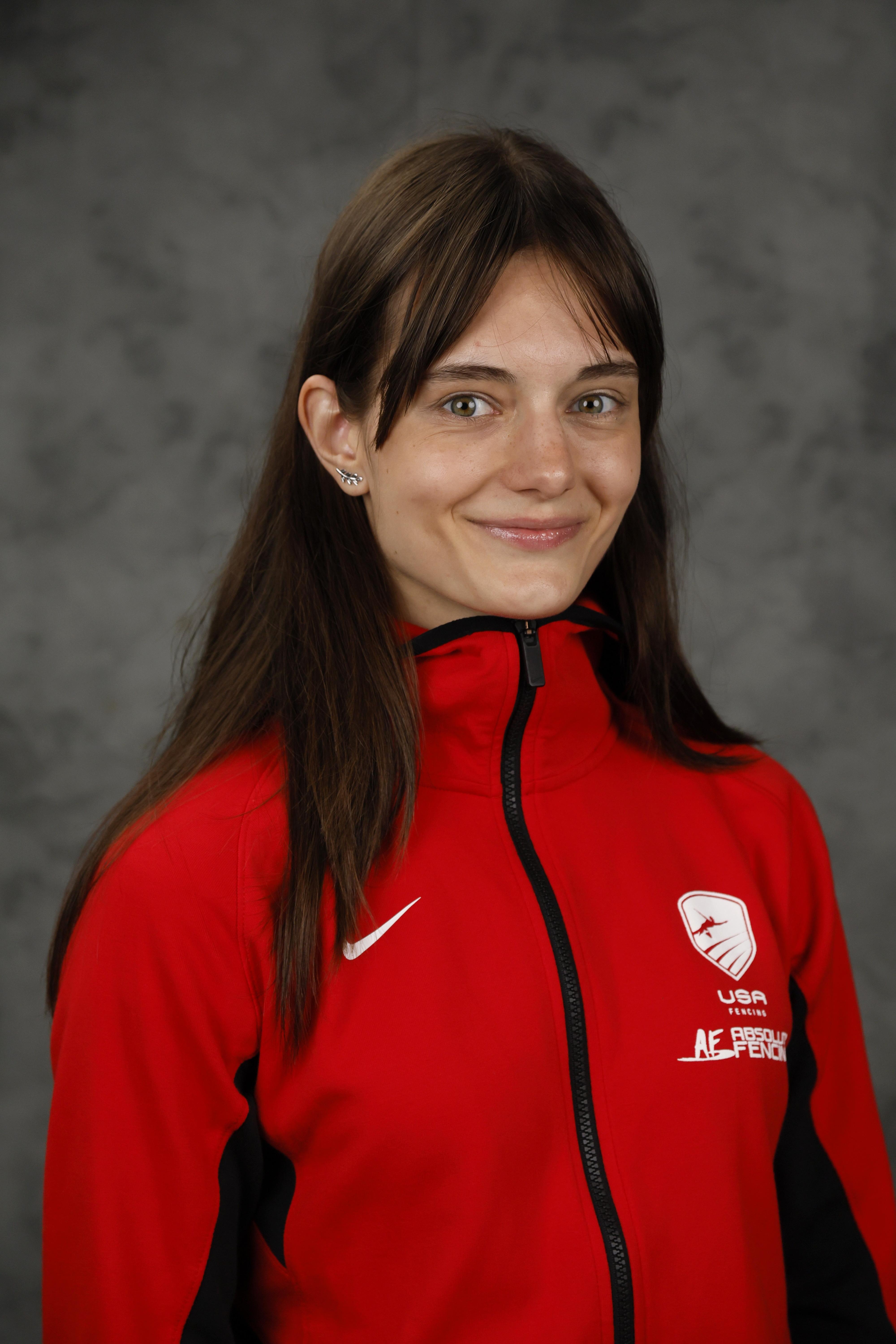
Hometown: Brooklyn, N.Y.
Club(s): New York Athletic Club, New York Fencing Academy
College: Columbia
Events: Individual & Team
Number of Games: 1st
Coach(es): Sergey Danilov
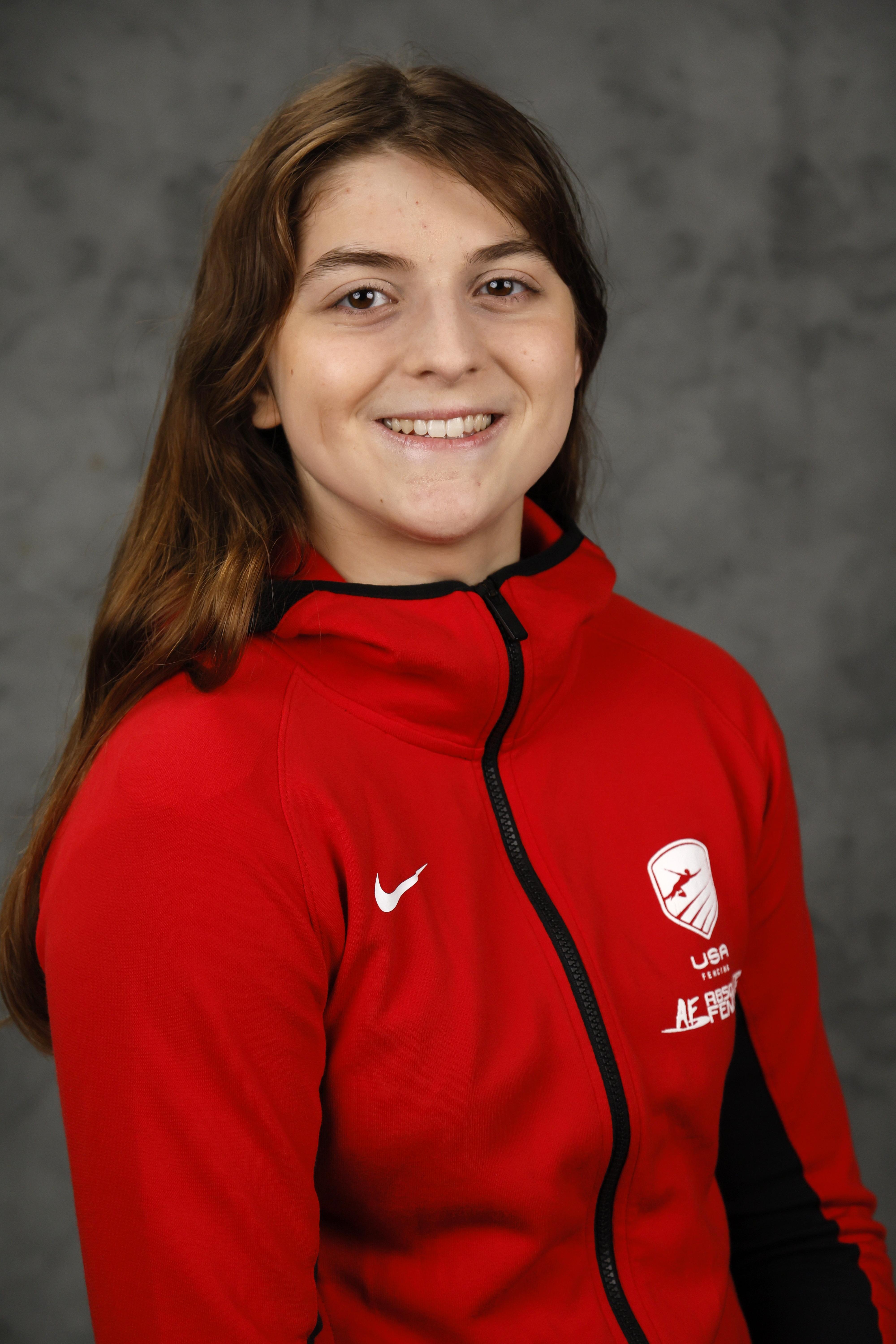
Hometown: Oakton, Va.
Club(s): Fencers Club, Elite Fencing Academy & DC Fencers Club
College: Princeton
Events: Individual & Team
Number of Games: 1st
Coach(es): Guillermo Madrigal
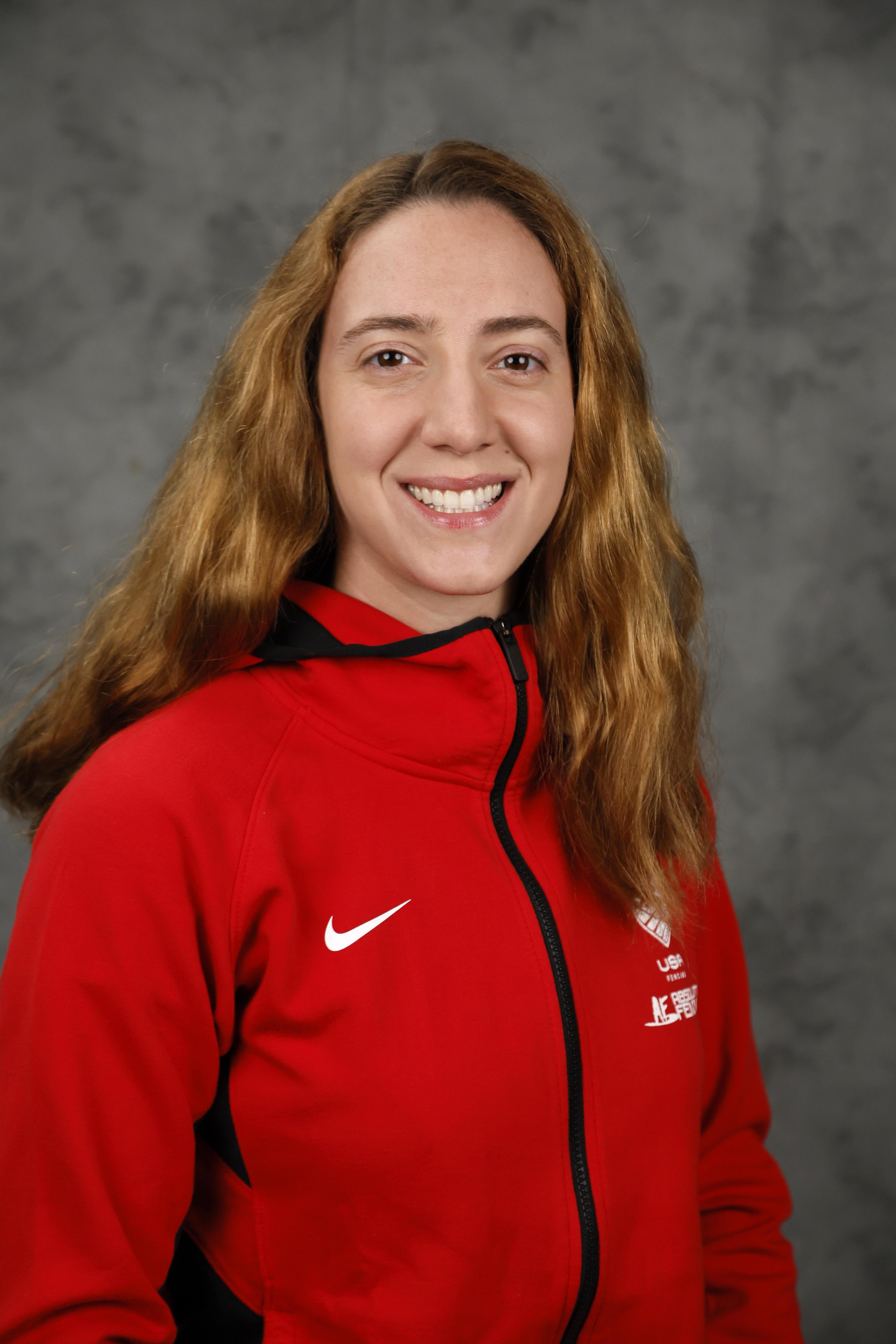
Hometown: Hartland, Wis.
Club(s): Ataba Fencing Club
College: Penn State
Events: Individual & Team
Number of Games: 1st
Coach(es): Abbas Fadel
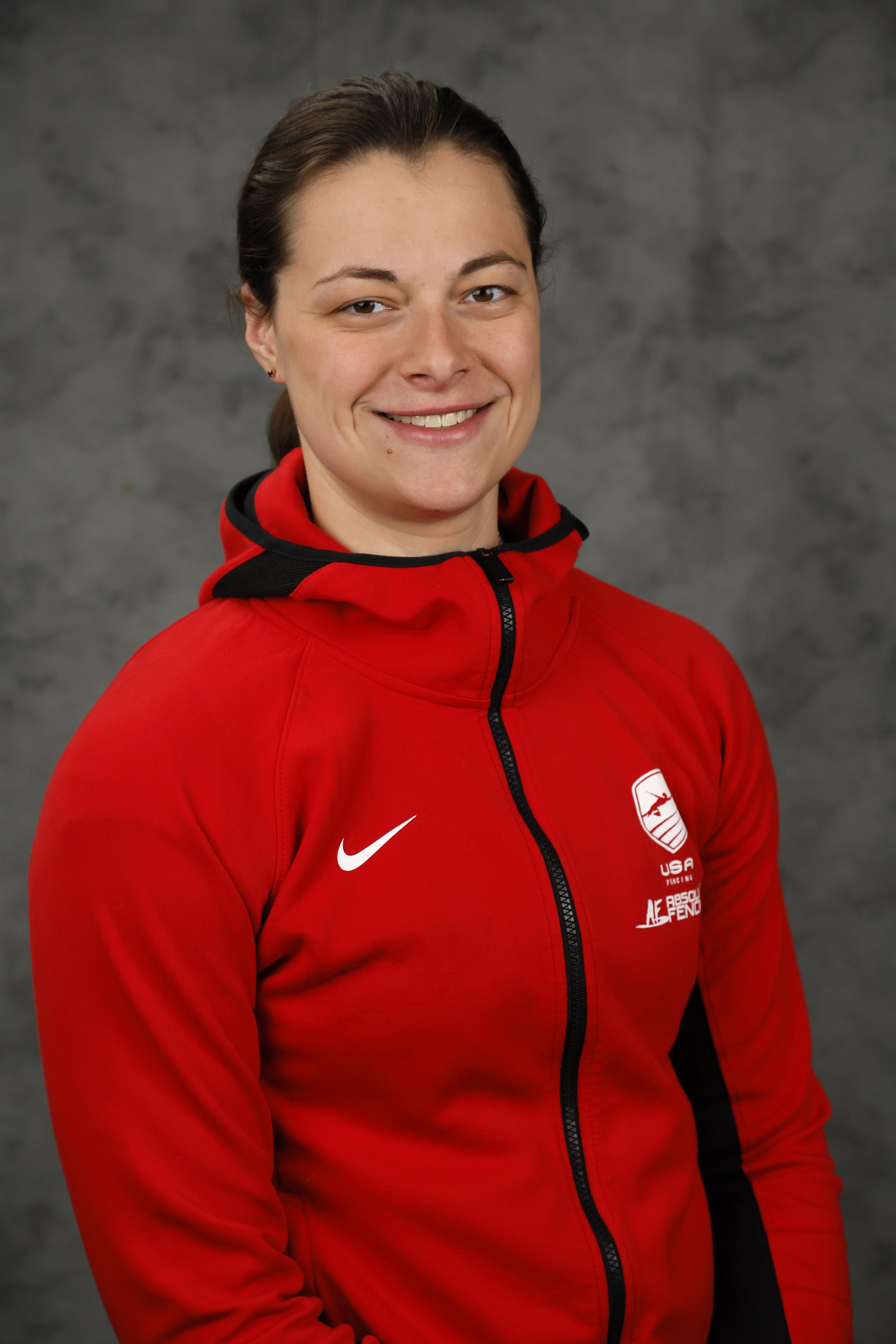
Hometown: Washington, D.C.
Club(s): New York Athletic Club & DC Fencers Club
College: Princeton
Events: Team
Number of Games: 3rd (2016, 2020, 2024)
Coach(es): Zoltan Dudas
Women’s Foil #
National coach: Ralf Bissdorf
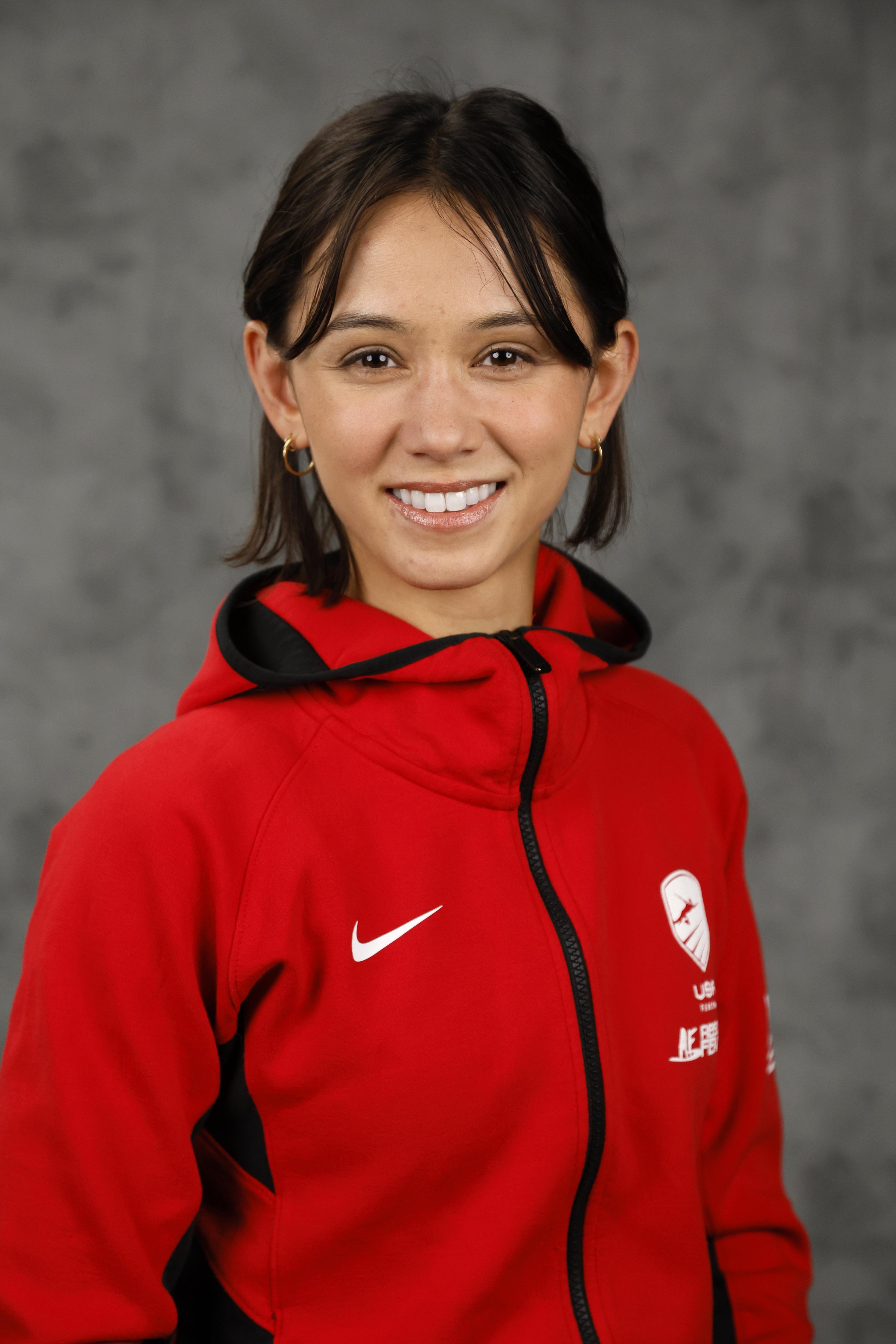
Hometown: Lexington, Ky.
Club(s): Bluegrass Fencers’ Club
College: Notre Dame
Events: Individual & Team
Number of Games: 4th (2012, 2016, 2020, 2024)
Coach(es): Amgad Khazbak
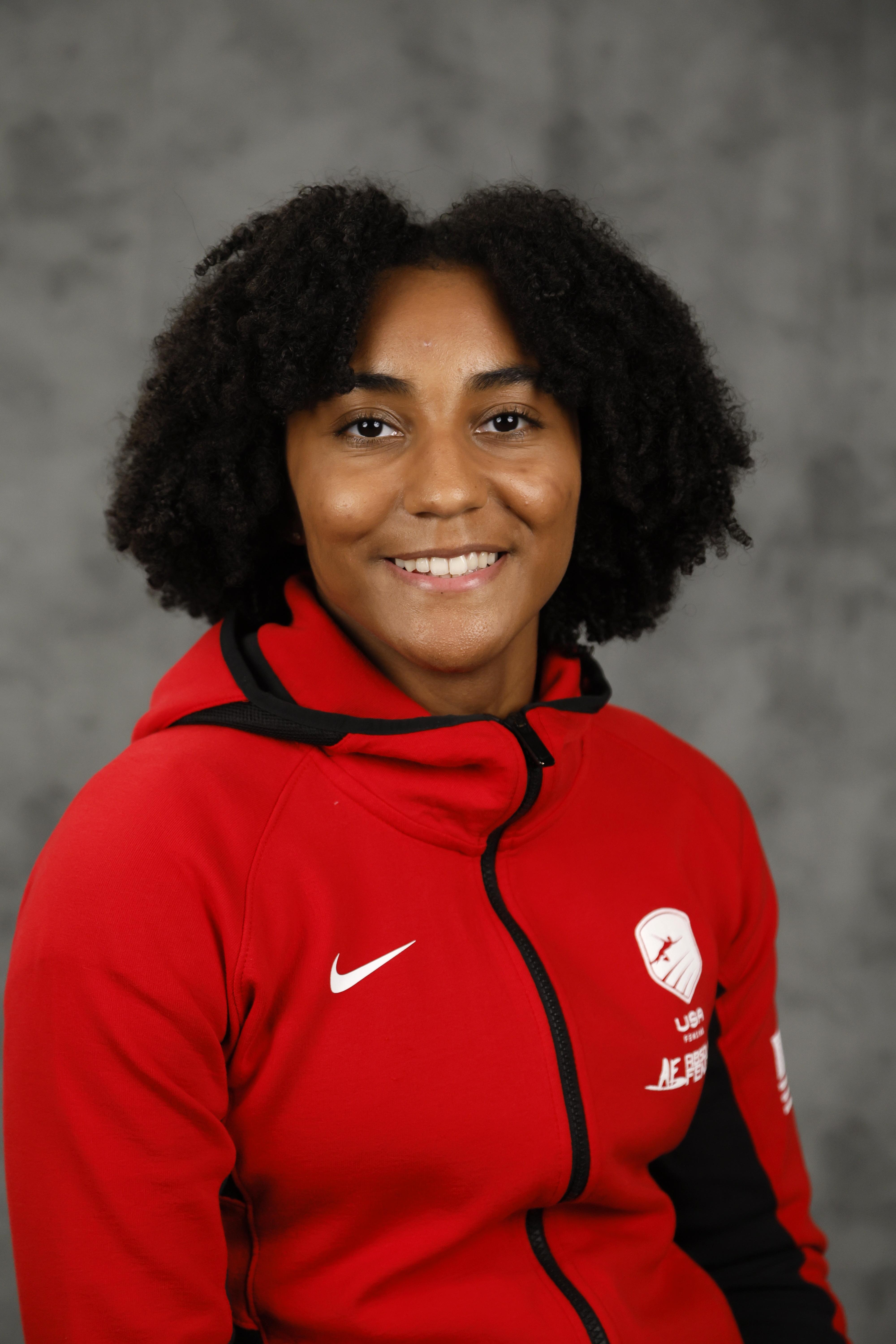
Hometown: Queens, N.Y.
Club(s): Peter Westbrook Foundation, Fencers’ Club
College: Harvard
Events: Individual & Team
Number of Games: 1st
Coach(es): Sean McClain

Hometown: Maplewood, N.J.
Club(s): New Jersey Fencing Alliance
College: Columbia
Events: Individual & Team
Number of Games: 2nd (2020, 2024)
Coach(es): Brian Kaneshige
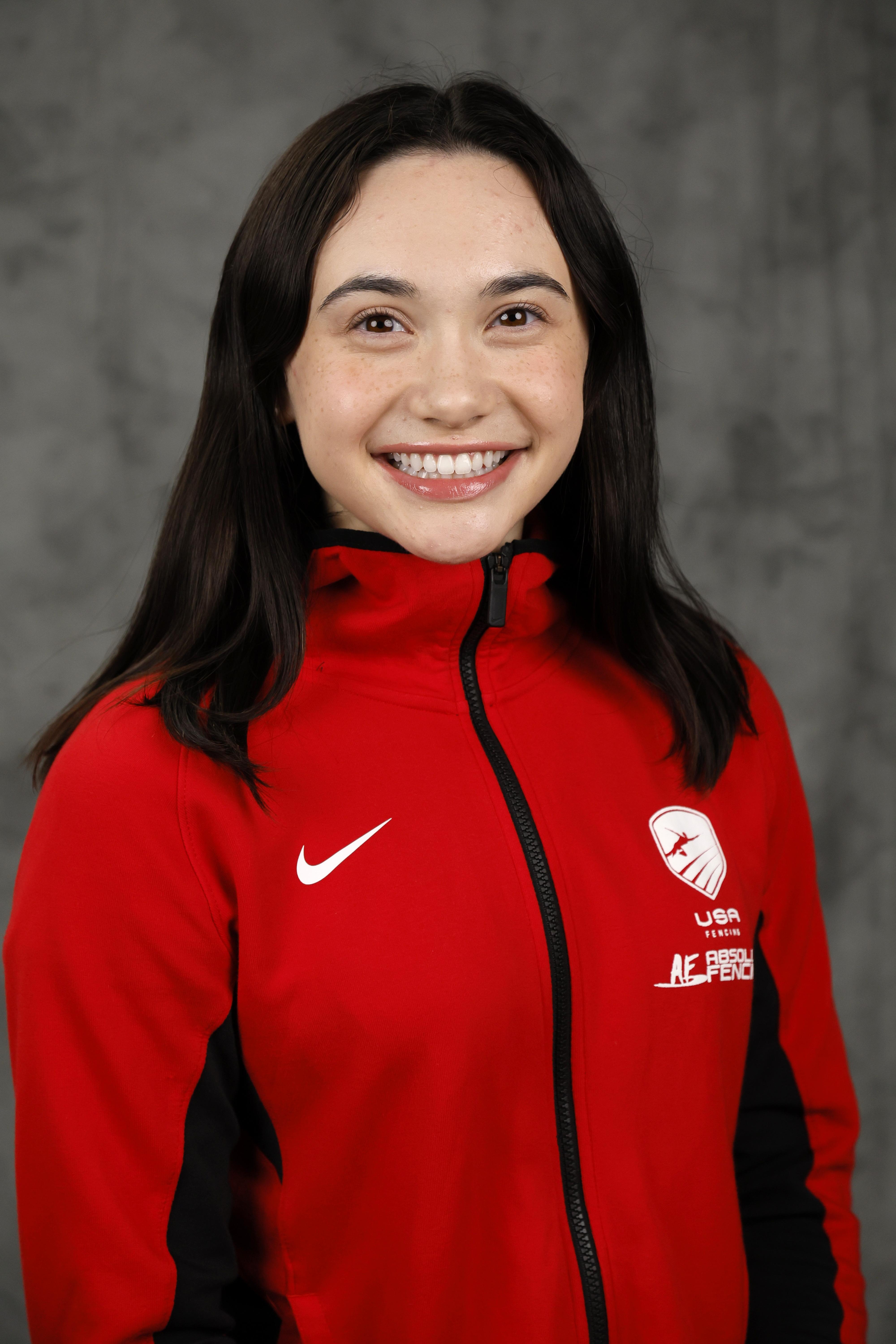
Hometown: Philadelphia, Pa.
Club(s): Fencers Club & Fencing Academy of Philadelphia
College: Princeton
Events: Team
Number of Games: 1st
Coach(es): Simon Gershon, Mark Masters
Men’s Foil #
National coach: Greg Massialas

Hometown: San Francisco, Calif.
Club(s): Massialas Foundation (MTeam)
College: Stanford
Events: Individual & Team
Number of Games: 4th (2012, 2016, 2020, 2024)
Coach(es): Greg Massialas

Hometown: Los Angeles, Calif.
Club(s): LA International Fencing Center
College: Notre Dame
Events: Individual & Team
Number of Games: 2nd (2020, 2024)
Coach(es): Michael Itkin

Hometown: Lexington, Ky.
Club(s): Massialas Foundation (M Team), Bluegrass Fencers' Club
College: Notre Dame
Events: Individual & Team
Number of Games: 5th (2008, 2012, 2016, 2020, 2024)
Coach(es): Greg Massialas, David Willette
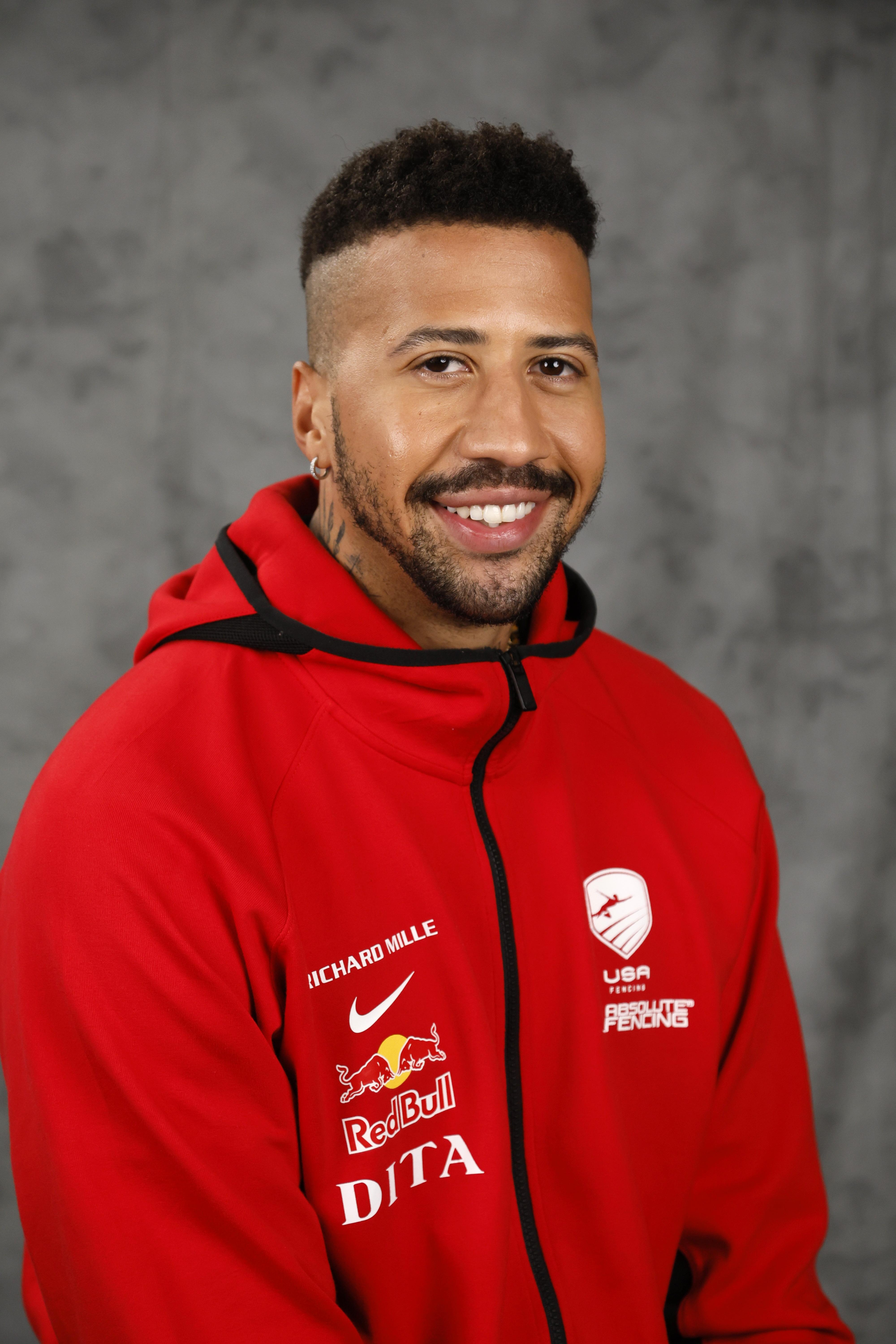
Hometown: Los Angeles, Calif.
Club(s): LA International Fencing Center
College: Penn State
Events: Team
Number of Games: 3rd (2012, 2016, 2024)
Coach(es): Michael Itkin
Women’s Saber #
National coach: Aleks Ochocki

Hometown: Livingston, N.J.
Club(s): Manhattan Fencing Center
College: Harvard
Events: Individual & Team
Number of Games: 1st
Coach(es): Yury Gelman
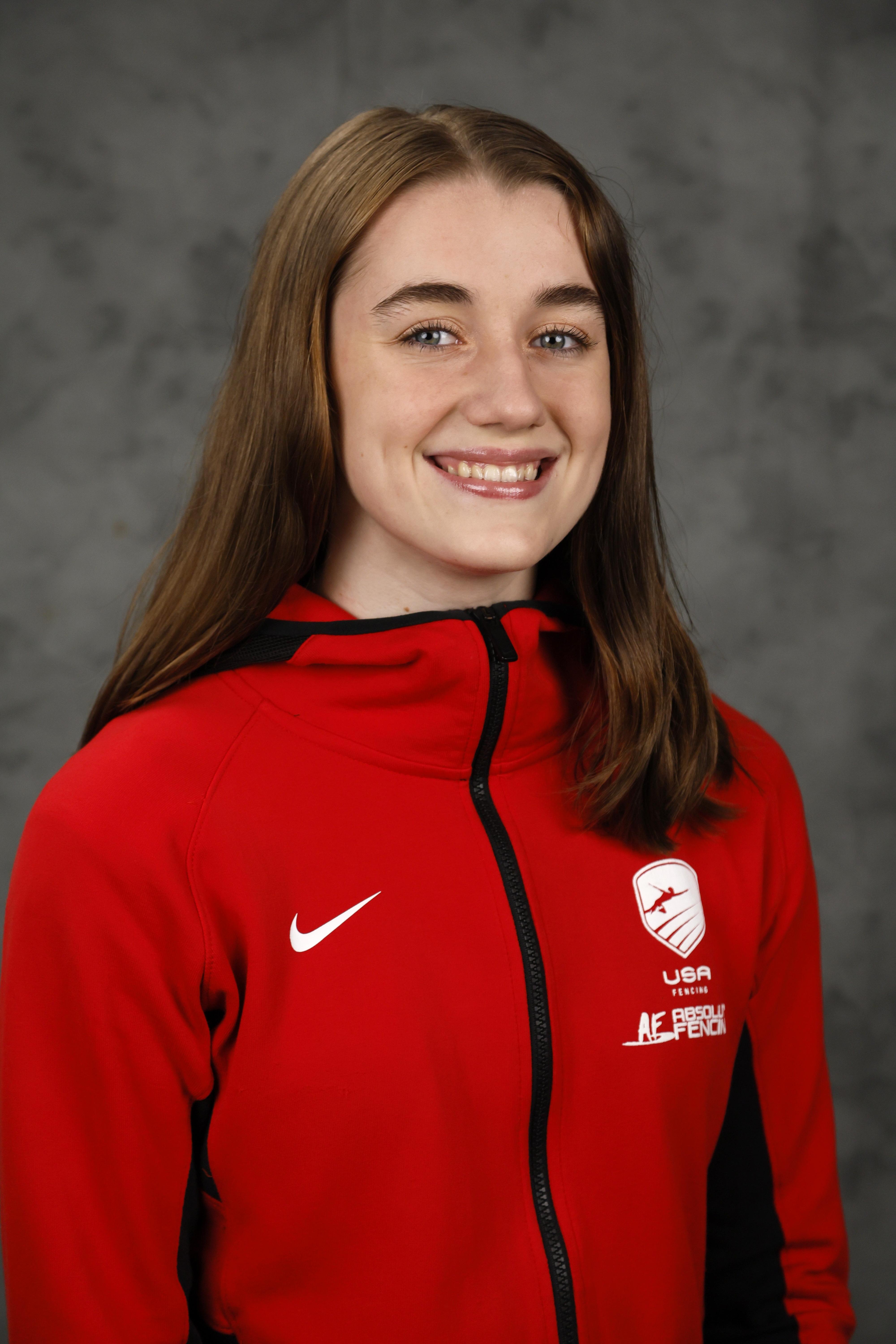
Hometown: Portland, Ore.
Club(s): Oregon Fencing Alliance
College: Notre Dame (committed)
Events: Individual & Team
Number of Games: 1st
Coach(es): Adam Skarbonkiewicz

Hometown: Bethesda, Md.
Club(s): Nazlymov Fencing Foundation
College: Princeton
Events: Individual & Team
Number of Games: 1st
Coach(es): Vitali Nazlymov

Hometown: Menlo Park, Calif.
Club(s): Manhattan Fencing Center
College: Princeton
Events: Team
Number of Games: 1st
Coach(es): Yury Gelman
Men’s Saber #
National coach: Akhi Spencer-El
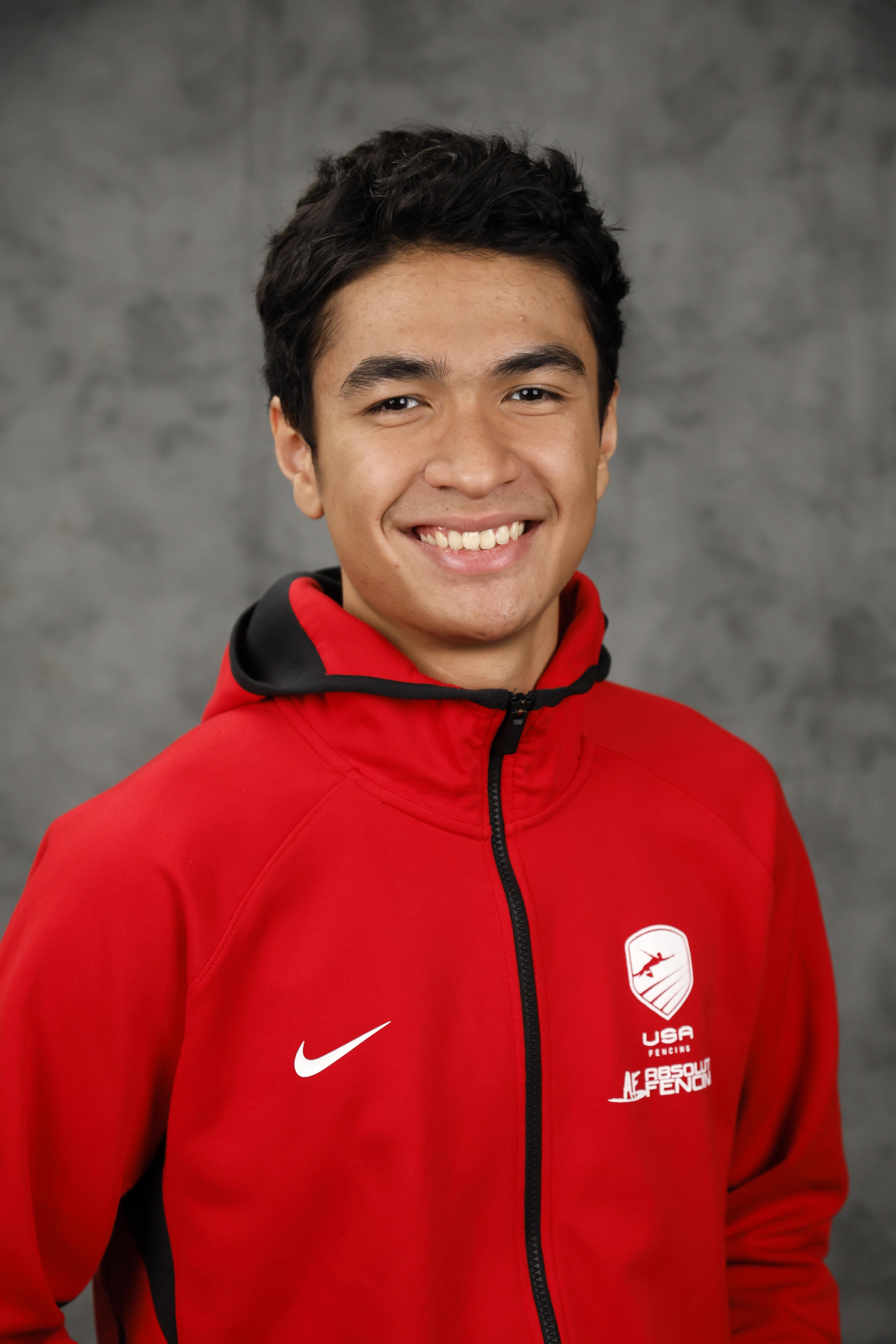
Hometown: Beijing, China
Club(s): Christian Bauer Academy & Manhattan Fencing Center
College: Harvard (committed)
Events: Individual & Team
Number of Games: 1st
Coach(es): Christian Bauer

Hometown: Sherborn, Mass.
Club(s): Tim Morehouse Fencing Club
College: Harvard
Events: Individual & Team
Number of Games: 3rd (2016, 2020, 2024)
Coach(es): Aleksander Ochocki

Hometown: Ridgewood, N.J.
Club(s): Bergen Fencing Club, New York Athletic Club
College: Harvard
Events: Individual & Team
Number of Games: 1st
Coach(es): Oleg Stetsiv

Hometown: Park Ridge, Ill.
Club(s): Midwest Fencing Club & Tim Morehouse Fencing Club
College: Harvard
Events: Team
Number of Games: 1st
Coach(es): Bart Pukal
